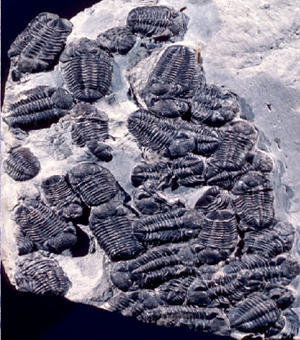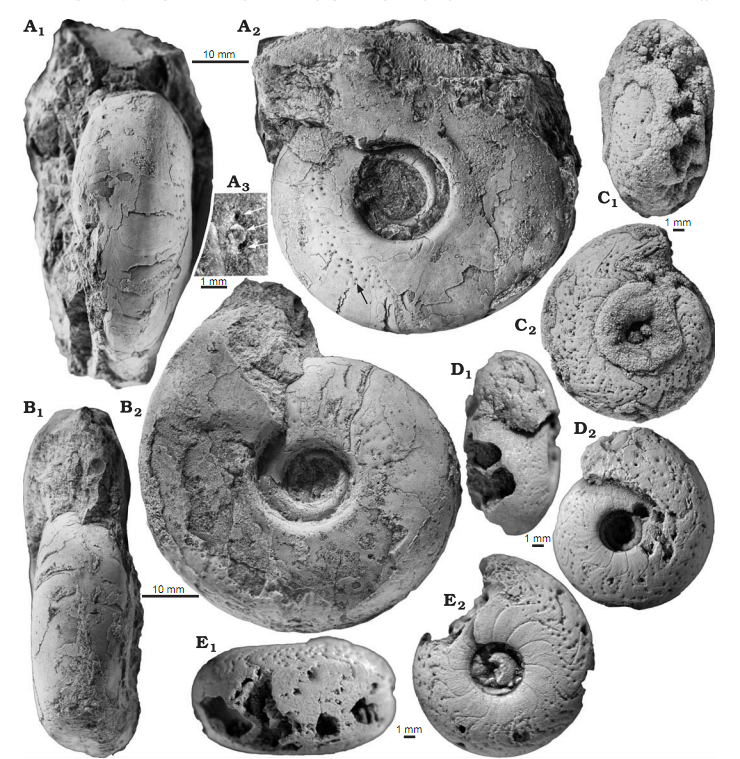Shellfish thrived during the Devonian at 3,000 ppm CO2. Their Aragonite shells did not dissolve. Unless the properties of Aragonite have magically changed, it seems safe to assume that modern Aragonite shells will probably not dissolve at 500 ppm. Even Joe Romm’s hysterics won’t make them dissolve.
http://www.sciencedaily.com/releases/2011/03/110316152939.htm




Ed Darrell thinks CO2 starts to be a serious problem at 1/10th of that:
http://stevengoddard.wordpress.com/2011/07/11/greens-having-been-plotting-the-demise-of-lake-powell-for-decades/#comment-70877
Ed’s a hysterical maroone………..
Animals that lay down calcium have to make that environment acid to begin with….
… they have to dissolve calcium carbonate to make it soluble, then they can lay down their calcium skeletons
They do that by making it acid….
…and they make it a lot more acid than CO2 ever could
Just for fun, imagine if there were CO2 meters everywhere. In your car, in your house, by your computer, in your bedroom, bathroom …
There are so many nitwits like Ed Darrell that would be in a panic when it dawns on them that CO2 is all around them, and closing in (cue Jaws music).
Lying in bed they would never sleep as the little LED by the clock starts climbing from 400 ppm to 450 ppm …etc.
When they’re driving down the road watching the car meter hit 800 ppm, 1000 ppm, 1200 ppm that they would wreck their vehicle racing to get home.
A few years ago I thought this level of insanity was not demonstrable.
I believe I was wrong.
Yeah, but that was a totally dif’rent CO2: it wasn’t caused by dinosaur SUVs. Shellfish can tell what their CO2 comes from, just like trees can sense climate thousands of miles away.
Magical thinking is objectively pro-science.
Household CO2 levels a commonly over 1000ppm, 2000 ppm in the winter is common…..
…so no one can keep a reef aquarium in their house
believe it or not, the issue is not local micro-changes in CO2. haven’t seen any scientist being alarmed about the CO2 in closed or micro environments, be it bedsides, tailpipes, or aquariums.
But at least you are not saying that Ocean acidification cannot happen, as the esteemed Peer of the Great Empire of Great Britain Lord Moncton maintains. I have also read that certain diatoms actually create a micro environment to protect their exoskeletons from ph changes.
My understanding is as carbonate concentration decreases in the ocean it impacts organisms that make shells from calcium.. Here are 7,350 articles, the first few I scanned all make the same claim.
http://scholar.google.com/scholar?q=acidification+effect+on+shellfish&hl=en&as_sdt=0&as_vis=1&oi=scholart
Here is a quote from the Gazeau 2007 paper
“…As, at a constant salinity, calcium concentration is rather
constant in the ocean, the calcification process mainly
depends on the availability of CO3 [superscript]2 . The calcium
carbonate saturation state: [hash made of the following formula]
? = CO 2 3 Ca2þ ½
K0sp ð2Þ
where K’s p is the stoichiometric solubility product (dependent
on temperature, salinity, pressure and on the considered
mineral phase: calcite, aragonite or high-magnesian calcite)
will therefore decrease although, the surface ocean will
remain almost entirely supersaturated (? > 1) with respect
to calcite and aragonite, the only exception being ?aragonite
in cold waters [Orr et al., 2005].
[4] Several experiments have shown a reduction of calcification
and size at elevated pCO2 in corals, coralline algae,
coccolithophorids and foraminifera.
they also go on to say “based on the analysis of sediment
cores covering a period from the last glacial maximum
to preindustrial times, they showed that some species are
certainly able to adapt their calcification mechanism to the
change in carbonate chemistry. Although this hypothesis
may be true for fast-growing and genetically diverse species, this still has to be investigated for higher organisms.
So Latitude, just publish your paper showing that aquariums reefs are unaffected by CO2, and you will have turned marine chemistry on its head, and I can say I knew you back before you becomes famous
“So Latitude, just publish your paper showing that aquariums reefs are unaffected by CO2, and you will have turned marine chemistry on its head, and I can say I knew you back before you becomes famous”
The usual “government scientists can’t be wrong because there are so many of them” argument.
Tony, have you seen anything that says exactly what that reduction in calcification is?
No you haven’t………
It’s so small it’s meaningless………
There will be ocean acidification as soon as the oceans run out of carbonates, and not until then…………..
Shellfish, uh? More like, Exxonfish. Beware of animals sponsored by the fossil-fuel industry!!